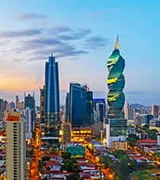The Hong Kong Stock Exchange, a wholly-owned subsidiary of Hong Kong Exchanges and Clearing (HKEX), recently published new guidelines on environmental, social and governance (ESG) reporting. It also launched its updated ESG e-training program, to help issuers better navigate the evolving standards on ESG reporting. The new reporting regime will take effect for financial years commencing on or after July 1, 2020, and this is planned to help attract more investors to Hong Kong.
The e-training program will help issuers understand the amendments (new ESG requirements) to the Listing Rules and the ESG reporting guide (Guide) adopted in the “Consultation Conclusions on Review of the Environmental, Social and Governance Reporting Guide and Related Listing Rules” (ESG conclusions), published in December 2019. The e-training course, “Exchange’s New ESG Requirements” covers the following six topics:
- Exchange’s new ESG requirements
- Board governance
- Reporting principles and boundaries
- Setting targets
- Climate change
- Social KPIs (Key Performance Indicators)
The HKEX first introduced the ESG reporting guide in 2012 for the voluntary disclosure of ESG information. The guide was revised in 2016 following a market consultation. In December 2019, the HKEX adopted enhancements to the existing ESG reporting regime. The key change in the ESG reporting is the mandatory disclosure of governance structure to strengthen board involvement in managing ESG issues. Key changes to the ESG Guide and related Listing Rules include:
- Introducing mandatory disclosure requirements to include:
- a board statement setting out the board’s consideration of ESG matters;
- application of Reporting Principles “materiality”, “quantitative” and “consistency”; and
- explanation of reporting boundaries of ESG reports;
- Requiring disclosure of significant climate-related issues which have impacted and may impact the issuer;
- Amending the “Environmental” key performance indicators (KPIs) to require disclosure of relevant targets;
- Upgrading the disclosure obligation of all “Social” KPIs to “comply or explain”; and
- Shortening the deadline for publication of ESG reports to within five months after the financial year-end.
The HKEX indicates that these enhancements “emphasize the [listco] board’s leadership role and accountability in ESG and the governance structure for ESG matters.” Furthermore, the HKEX and Securities & Futures Commission of Hong Kong (SFC) aim to work jointly on exploring alignment of climate-related disclosures in Hong Kong (HK) with Task Force on Climate-Related Financial Disclosures (TCFD) recommendations, to improve effectiveness of ESG reporting in HK. This will hopefully help facilitate investor demand for HKEX-listed companies and also help support the inclusion of HKEX-listed issuers into the growing group of ESG-focused investors and asset managers. The changes reflect the Exchange’s commitment to enhancing Hong Kong’s ESG regulatory framework and to meeting investor and stakeholder expectations in accordance with international best practices.
- According to the 2018 Global Sustainable Investment Review, global ESG investment (i.e., the incorporation of ESG considerations into investment processes) reached USD 30.68 trillion in 2018, a 131% jump from USD 13.3 trillion in 2012.
- Schroders’ Global Investor Study 2019, which surveyed over 25,000 investors globally (nearly 500 of which were from HK) found that 53% of HK investors considered sustainable factors, when selecting an investment product.
One key area within HKEX’s new ESG reporting requirements is the introduction of new KPIs on supply chain management which require the following:
- Disclosure of practices used to identify environmental and social risks along the supply chain
- Practices used to promote environmentally preferable products and services when selecting suppliers
We are continuing to see a major impact on the health and safety of the world’s population because of the ongoing coronavirus outbreak. Additionally, the virus has had a disruptive impact on global economies and supply chains. Under such circumstances, companies in Hong Kong will need to plan for supply chain assessments and find best approach to manage ESG due diligence to help fulfill upcoming ESG requirements. This will be a focus not only in HK but globally, and will become more important in the coming days, when the market hopefully recovers and looks to find attractive investments.
Source
1 Review of the Environmental, Social and Governance Reporting Guide and Related Listing Rule - https://www.hkex.com.hk/-/media/HKEX-Market/News/Market-Consultations/2016-Present/May-2019-Review-of-ESG-Guide/Conclusions-(December-2019)/cp201905cc.pdf
2 New SFC survey on ESG, climate change and asset management - https://www.sfc.hk/edistributionWeb/gateway/EN/news-and-announcements/news/doc?refNo=19PR117
3 2018 global Sustainable investment review - http://www.gsi-alliance.org/wp-content/uploads/2019/03/GSIR_Review2018.3.28.pdf
4 Global Investor Study 2019 - https://www.schroders.com/en/hk/retail-investors/insights/global-investor-study/2019-findings/sustainability-infographic/





